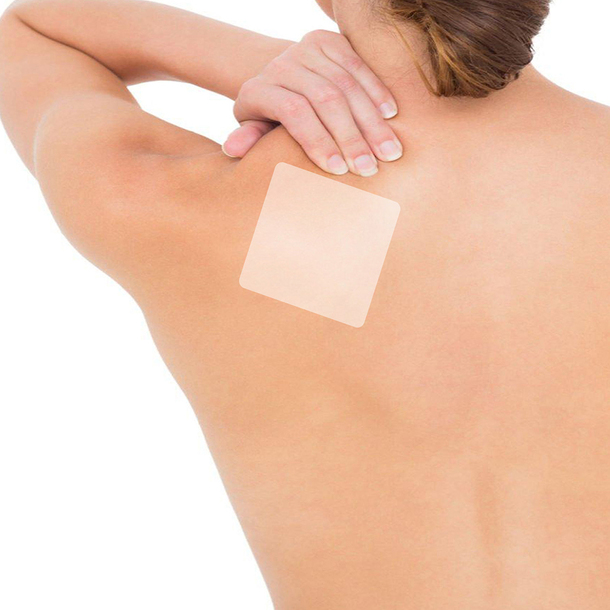Multivitamins for Stronger Bones and Joint Support
 |
| Multivitamins for Stronger Bones and Joint Support |
Let’s be honest—bone and joint health isn’t something most women think about until something starts to hurt. But the truth is, what we do in our 20s, 30s, and 40s sets the stage for how mobile and pain-free we’ll be later in life. Between fluctuating hormones, pregnancies, and changes during menopause, women face unique challenges when it comes to maintaining bone density and joint flexibility.
That’s where multivitamins come in—not as a magic fix, but as a support system. With the right formulation, they can fill nutritional gaps, strengthen your bones, reduce inflammation, and even help prevent issues like osteoporosis and joint stiffness down the line.
In this guide, we’ll dig into how to choose a multivitamin for women that’s tailored specifically to promote bone and joint health—and why it matters more than you might think.
Why Women Need to Prioritize Bone & Joint Health
Women are more prone to bone loss than men, especially after menopause due to the sudden drop in estrogen. In fact, about one in two women over 50 will break a bone due to osteoporosis. Even before that age, stress, lack of sunlight, poor diet, and sedentary habits can chip away at bone strength and joint mobility without us noticing.
So, what’s the goal?
Prevent bone mineral loss
Improve calcium absorption
Reduce joint inflammation
Maintain cartilage health
Enhance flexibility and comfort
That’s a tall order—but the right multivitamin can support each of those areas with key nutrients.
Key Nutrients to Look for in a Bone & Joint Support Multivitamin
1. Calcium
This one’s no surprise—calcium is the backbone of bone health. But most women don’t get enough from food alone. A good supplement includes 500–800 mg of calcium per day. Just make sure it's paired properly because calcium needs help to do its job.
2. Vitamin D3
Without vitamin D, your body can’t absorb calcium effectively. Look for D3, not just D2, since it's more bioavailable. Women with low sun exposure may need even more than the standard 600–800 IU.
3. Vitamin K2
Vitamin K2 helps direct calcium to your bones rather than soft tissues (like arteries). This is a critical yet often overlooked nutrient when choosing a multivitamin for women focusing on bone health.
4. Magnesium
Magnesium helps regulate calcium transport and is essential for converting vitamin D into its active form. It also supports muscle relaxation, which can ease joint tension and stiffness.
5. Collagen & Vitamin C
Collagen supports cartilage, the cushion between joints. While collagen itself may be missing from many multivitamins, vitamin C plays a vital role in collagen synthesis and joint tissue repair. Some multivitamins now include a small amount of collagen or collagen-supporting compounds.
6. Boron
A trace mineral with big benefits, boron supports bone growth and helps retain important minerals like calcium and magnesium. It's a quiet powerhouse in bone support formulas.
7. Omega-3s or Anti-Inflammatory Compounds
While not always in a basic multivitamin, if you're shopping for joint support, consider formulas that include anti-inflammatory additions. These can help reduce stiffness and keep joints moving smoothly.
Are You Absorbing What You Take?
One common mistake with supplements: assuming more means better. But nutrient absorption is everything. For example:
Calcium and magnesium compete, so balance is important.
Vitamin D improves calcium absorption but needs fat to be absorbed itself.
Certain medications or gut issues can interfere with uptake.
Choosing a well-balanced formula—and ideally taking it with food—can make a big difference in results.
Life Stages and Changing Needs
Women’s bone health needs evolve. Younger women may not require as much calcium but should start building reserves early. Pregnant and postpartum women have fluctuating calcium and vitamin D needs due to fetal bone development and breastfeeding. Perimenopausal and postmenopausal women require more robust support as estrogen declines and bone density drops.
For deeper guidance tailored to different life phases, check out our article on Multivitamins for Specific Women's Health Needs.
Signs You Might Benefit From a Bone & Joint Multivitamin
You often experience joint aches, especially in the knees or hips
You’re approaching or are in menopause
You live in a region with limited sun exposure
You have a history of fractures or bone loss in your family
Your diet lacks dairy, leafy greens, or oily fish
You’ve noticed reduced flexibility or stiffness in the morning
If any of these sound familiar, your body might be asking for nutritional backup.
What to Avoid
Not all multivitamins are created equal. Watch out for:
Excessive calcium (over 1000 mg per day) which can build up in the kidneys
Fillers and binders that limit absorption
Missing co-factors (like no vitamin D with calcium)
High-dose iron unless you're deficient, as it may interfere with calcium absorption
It's better to have a targeted formula with the right ratios than an overstuffed one that misses the mark.
Conclusion
Strong bones and flexible joints aren’t just about aging gracefully—they’re about living fully. Whether it's hiking with friends, dancing at weddings, or simply getting through a long workday without back pain, mobility shapes your quality of life.
The right multivitamin for women can’t replace a healthy lifestyle, but it can help reinforce your foundation—quietly, consistently, and powerfully.
As always, pair your supplements with weight-bearing exercise, balanced meals, and regular check-ins with your healthcare provider. Because taking care of your bones today is an investment in the freedom to move tomorrow.



Comments
Post a Comment